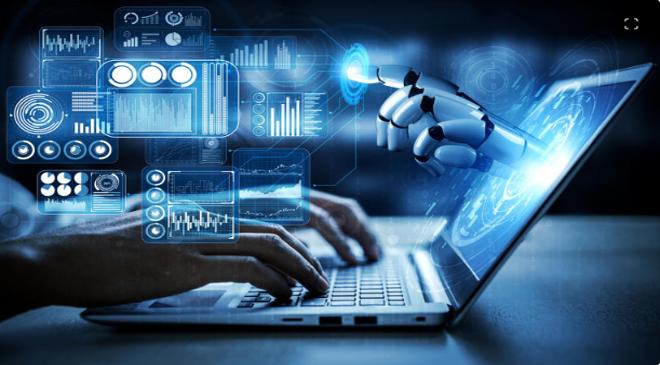As Artificial Intelligence settles into various industries across the globe, labor jobs will continue to evolve — in both good and bad ways. While AI will change the nature of many labor jobs, it’s unlikely to replace the need for human labor entirely. Humans will need to apply judgment, creativity and the ability to adapt. But those new jobs aren’t a given. The workforce of today and tomorrow will need to prepare for these changes through education and training.
Also, companies and governing bodies will need to keep up and think in broad strokes about the importance of AI, according to Shadd Weber, a former job analyst with the U.S. Department of Labor. “We’re talking about culture-shifting changes to the workforce that we may not be ready for, so it’s important to look at this with a wide lens,” says Weber. “We’re not just talking about the bottom line here; we’re talking about the job market, worker qualifications, the workweek and improving the work-life situations of laborers.”
We checked with several labor experts on how AI could change the landscape of labor-intensive occupations. Here’s a summary of their predictions:
Fewer repetitive tasks: Numerous repetitive tasks, especially in manufacturing and warehousing, are automated with AI-driven robots. AI-powered warehouse robots can sort, pick and transport goods faster than human workers. It also results in fewer errors. Although new jobs will be created programming, installing, servicing and repairing the robotic equipment, it will likely lead to job losses in roles that involve humans doing routine tasks.
Enhanced safety: AI will continue to analyze data to predict equipment failures or identify safety hazards, potentially reducing accidents, especially in industries like construction and mining. AI-powered drones will perform site inspections in dangerous areas, reducing the need to expose human workers to serious risks.
Read More – Next-Generation iDrive Coming To Neue Klasse Models In 2025
New and altered skills: AI will create new opportunities as it replaces certain jobs. Workers might need to shift from manual tasks to roles that involve supervising, operating or maintaining AI-driven machines. This means training and education will have to increase and become more available, helping workers acquire new skills to work in tandem with AI systems.
Precision and efficiency: AI can also assist in precision tasks, ensuring consistency and quality in production in numerous settings under various circumstances.
Agricultural shift: AI-driven machinery — at least with conglomerate large-scale food suppliers — will optimize the planting, watering and harvesting of crops, potentially leading to more efficient and sustainable farming practices and potentially, fewer jobs for seasonal workers.
Improvements to supply chain and logistics: AI is already impacting many global delivery and sourcing scenarios worldwide. Consider routes for delivery trucks — think of Google Maps but on a massive global scale. AI’s transportation solutions for the delivery of goods will only increase in the years ahead. AI will also be used to predict maintenance, meaning less downtime for the numerous forms of transportation participating in the supply chain.
A refined workforce: New categories of jobs may emerge, focusing on human-AI collaboration. Workers in these roles will leverage AI for data and insights but will apply human judgment, creativity and interpersonal skills to make final decisions or to perform tasks. In addition, AI will be used to develop long-term solutions to staffing needs, creating a more adaptable workforce. Integrating AI into new industries may also lead to more flexible work structures, as humans will work alongside machines in non-traditional environments or shifts.
Read More:- Hollie Bowden’s tips for mixing interiors styles — without veering into jumble sale anarchy
Inventory management: Already firmly in place in many industries, AI’s continued streamlining of inventory management will reduce the need for manual oversight and intervention.
Enhanced decision-making: AI can analyze vast datasets to create beneficial solutions. For example, the fishing industry can use AI to consider fish populations, weather conditions and water temperatures to guide fishing vessels to optimal locations.
Economic impact: If enough jobs are lost to AI, there may be economic ramifications from significant job losses, which could lead to new federal, state and local policies on education, job training, healthcare plans and more.
Social Implications: While we may have moved on from “The robots are coming!” screams of terror, the role of AI in the workplace will raise ethical questions about job losses, income inequality and the right to meaningful work.































